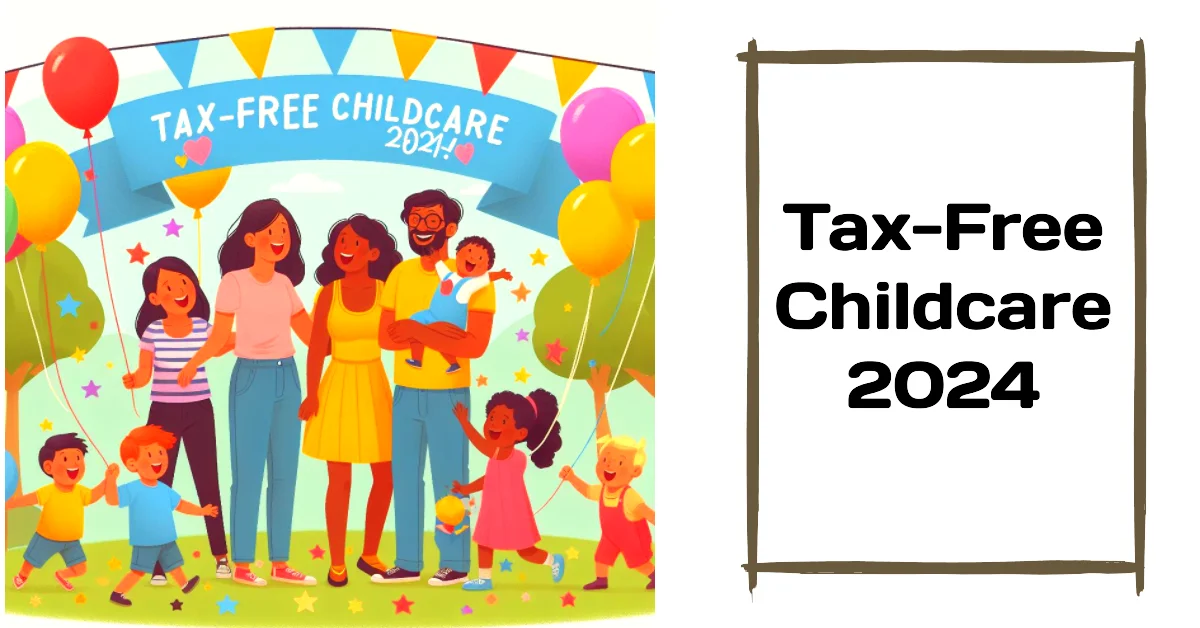For Advertising Contact Us
Tax-Free Childcare – How Does Tax-Free Childcare Work and How to Calculate?

Overwhelmed by the complexities of Tax-Free Childcare? We’ve got you covered. Understanding how Tax-Free Childcare works and how to calculate your eligibility can seem daunting, but with the right guidance, you can navigate through the process seamlessly. In this comprehensive guide, we will break down the ins and outs of Tax-Free Childcare, providing you with the knowledge and tools to determine if you qualify and how to calculate your potential savings. Let’s demystify Tax-Free Childcare together.
Understanding Tax-Free Childcare
Definition and Eligibility Criteria
Now, Tax-Free Childcare is a government scheme to help working parents with the cost of childcare. To qualify for Tax-Free Childcare, parents must meet certain eligibility criteria, including working a minimum number of hours per week, earning below a certain threshold, and not receiving other forms of childcare support.
Types of Tax-Free Childcare Schemes
Now, there are two main types of Tax-Free Childcare schemes available to parents – the Tax-Free Childcare scheme and the Childcare Vouchers scheme. The Tax-Free Childcare scheme allows parents to open an online account to pay for registered childcare providers, while the Childcare Vouchers scheme is offered through employers and allows parents to pay for childcare with vouchers deducted from their salary before tax.
- Tax-Free Childcare scheme
- Childcare Vouchers scheme
| Tax-Free Childcare scheme | Childcare Vouchers scheme |
| Parents open an online account | Offered through employers |
| Payments made to registered childcare providers | Childcare paid with vouchers deducted from salary |
| Government tops up payments by 20% | Savings on income tax and national insurance contributions |
| Available for children up to age 11 (17 for children with disabilities) | Not available for new applicants since October 2018 |
Understanding the differences between the Tax-Free Childcare scheme and the Childcare Vouchers scheme is crucial for parents looking to save on childcare costs. Knowing which scheme best suits their needs can help them make informed decisions and maximize their savings. Importantly, both schemes have their own set of rules and benefits, so it’s vital for parents to carefully evaluate their options before choosing a scheme.
How Tax-Free Childcare Works
Step-by-Step Guide to Applying for Tax-Free Childcare
To apply for Tax-Free Childcare, you first need to set up an online childcare account on the government’s website. Once your account is set up, you can add your children and your details. You will then need to pay into your account regularly to qualify for the government’s contributions.
| Step | Action |
| 1 | Set up an online childcare account |
| 2 | Add your children and your details |
| 3 | Regularly pay into your account |
How Payments Work and Government Contributions
Now, once you have paid money into your Tax-Free Childcare account, the government will also contribute towards your childcare costs. For every £8 you pay in, the government will add an extra £2, up to a maximum of £2,000 per child per year (or £4,000 if your child has a disability).
With Tax-Free Childcare, you can use the funds in your account to pay for approved childcare providers, including nurseries, childminders, and after-school clubs. The money can be used for children up to the age of 11, or 17 for children with disabilities.
Calculating Your Benefits
Factors Affecting Tax-Free Childcare Benefits
For those considering Tax-Free Childcare, it’s important to understand the factors that can affect the benefits you receive. The amount you are eligible for can vary based on factors such as your income, the number of children you have, and whether your child has a disability. Understanding these factors can help you make informed decisions when calculating your potential benefits.
- Your income level plays a significant role in determining the amount of Tax-Free Childcare benefits you are eligible for.
- The number of children you have can also impact the total benefit amount you receive.
- If your child has a disability, you may be entitled to additional support through Tax-Free Childcare.
The accuracy of your calculations is vital, as it will help you budget effectively and maximize the benefits you can receive. While estimating your benefits, be sure to consider all relevant factors to get a clear picture of how Tax-Free Childcare can support your family’s financial needs. The more accurate your calculations, the better you can plan for childcare expenses.
Tips and Tools for Accurate Calculations
Some helpful tips and tools can assist you in accurately calculating your Tax-Free Childcare benefits. Utilizing online calculators or eligibility checkers can streamline the process and provide you with a more precise estimate of the support you may receive. Additionally, seeking advice from financial experts or childcare providers can offer valuable insights into maximizing your benefits.
- Online calculators can help you quickly determine your potential Tax-Free Childcare benefits based on your specific circumstances.
- Reaching out to financial advisors or childcare providers can provide personalized guidance on navigating the Tax-Free Childcare system.
- Recognizing the nuances of the eligibility criteria can help you ensure you are receiving the maximum benefits available to you.
Calculating Your Benefits
Calculating your Tax-Free Childcare benefits involves taking into account various factors such as your income, the number of children you have, and any additional support you may be entitled to. By using the official government resources and tools available, you can input your information accurately to determine the amount of support you are eligible for. Consider consulting with professionals or utilizing online calculators to ensure a precise calculation of your Tax-Free Childcare benefits.
- Utilize government-provided tools to input your information accurately and determine your Tax-Free Childcare benefits.
- Consulting with financial advisors or childcare providers can offer personalized guidance on calculating your benefits effectively.
- Recognizing the intricacies of the Tax-Free Childcare system can help you make informed decisions about your childcare support.
Weighing Your Options
Pros and Cons of Opting for Tax-Free Childcare
| Pros | Cons |
| Helps save money on childcare expenses | Not suitable for everyone, eligibility criteria apply |
| Flexible, can be used for various childcare options | Complex application process |
| Government contribution can boost savings | Not applicable for self-employed individuals |
| Can be used in conjunction with other schemes | Strict deadlines and renewals |
Now, when considering tax-free childcare, it’s vital to weigh the pros and cons before making a decision. Understanding the advantages and disadvantages can help you determine if this scheme is the right choice for your family.
Comparison with Other Childcare Support Schemes
| Tax-Free Childcare | Other Childcare Support Schemes |
| Helps working families with childcare costs | Includes options like childcare vouchers and tax credits |
| Available for children under 12 | Eligibility criteria vary for different schemes |
Other, when comparing tax-free childcare with other childcare support schemes, it’s crucial to understand the differences in eligibility, benefits, and limitations. Each option has its own set of rules and advantages, so it’s vital to choose the one that best fits your circumstances.
Final Words
The Tax-Free Childcare scheme is a valuable resource for families looking to save money on childcare costs. By understanding how the scheme works and calculating your eligibility based on income and circumstances, you can make an informed decision about whether Tax-Free Childcare is right for you. Remember to take advantage of the government’s contribution of up to £2,000 per child per year, which can provide significant savings for your family. By staying informed and proactive in managing your childcare expenses, you can ease the financial burden and provide the best care for your children.



